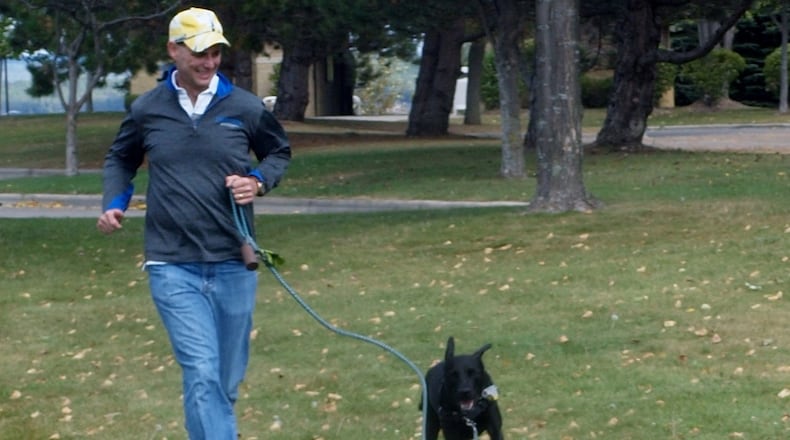According to the American Veterinarian Medical Association, “Infectious disease experts and multiple international and domestic human and animal health organizations agree there is no evidence at this point to indicate pets become ill with COVID 19 or that they spread it to other animals, including people.”
The Centers for Disease Control and Prevention (CDC) and the Ohio Veterinarian Medical Association (OVMA) concur.
So, when it concerns COVID-19 and our pets, why do we still worry?
Because, as Caras said, pets add a richness to our family life. My husband, Ed, and I have always had pets. Our daughter, Jordan, has grown up with them. And we’re concerned for their needs and well-being, as I know many of you are for your own pets from the emails and notes I’ve received since starting this column over three years ago.
And what has us and so many other pet owners concerned is the additional advice coming from these organizations.
The OVMA says, “Out of an abundance of caution, public health officials advise people who have contracted COVID 19 to limit their contact with animals until more is known about the virus. However, there is currently no evidence that pets can spread COVID 19.”
What does that mean? Avoid contact? The CDC says, “If you are sick with COVID 19 (either suspected or confirmed), you should restrict contact with pets and other animals, just like you would around other people.”
In other words, because we treat our pets as family members, we need to follow the same guidelines we would with human family members. Until experts have definitive evidence on COVID-19 and its impact on our furry family members, it’s important to be overly cautious. Just as when we avoid family and friends when we have the flu or a cold, we should do the same with COVID-19.
“When possible,” the CDC says, “have another member of your household care for your animals while you are sick. Avoid contact with your pet, including petting, snuggling, being kissed or licked, and sharing food. If you must care for your pet or be around animals while you are sick, wash your hands before and after you interact with them.”
I spoke with Dr. Savannah Hoying, vet for Teddy, our Lab, and Pip, our cat, about these organizations’ information and directives.
Dr. Hoying said it was important when reading about COVID-19 and pets that the information be from credible sources. In addition, she said to check with your vet’s website, and if you have immediate concerns, call the office.
My favorite Caras quote is, “Some of our greatest historical and artistic treasures we place in museums; others, we take for walks.”
One of the best ways for both you and your dog to fight COVID-19 is to stay healthy. If possible, grab the leash and go for a walk.
Dr. Hoying recommends these sites for reliable COVID-19 pet information
1. Your personal vet’s website
2. The Ohio Veterinary Medical Association (ohiovma.org)
3. The American Veterinary Medical Association (avma.org)
About the Author

